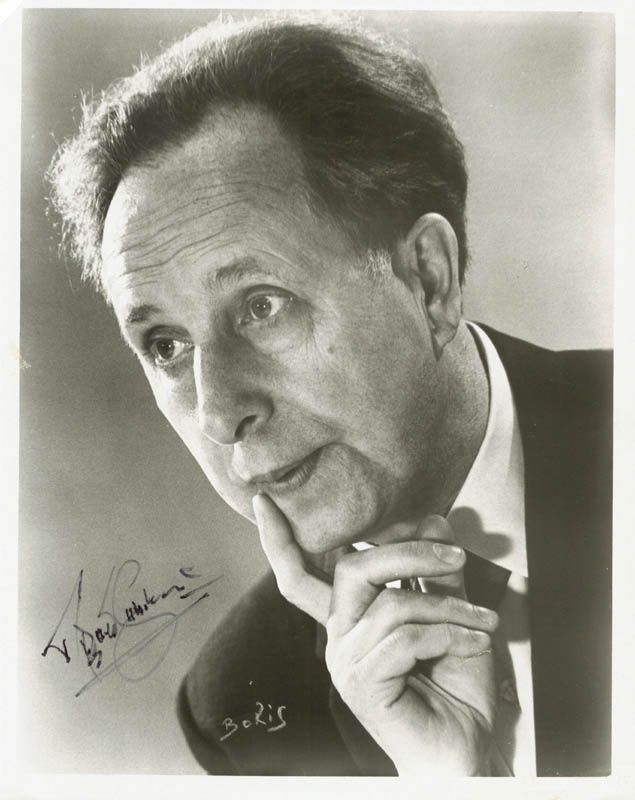

| Gene Gutchë
(born Romeo Maximilian Eugene Ludwig Gutschë)
(July 3, 1907, Berlin – November 15, 2000, White Bear Lake, Minnesota).
Composer. While much of his work is neo-Romantic, he also experimented
with polytonality, serialism, and microtones. His interest in piano attracted Ferruccio Busoni, who became his teacher despite his parents’ objection to his musical interest. He also took linguistics, philosophy and business at the Universities of Lausanne, Heidelberg and Padua. At age eighteen (1925), he left Germany for the U.S.A., and finally settled in Minnesota. At the University of Minnesota, he studied music with Donald Ferguson, earning a masters in music in 1950, continuing at the University of Iowa, where he received his doctorate in composition in 1953. Gutchë received various awards for his compositions. In 1958, he received the Minnesota State Centennial Prize for his Third String Quartet, followed by the Luria Award for Holofernes Overture in 1959. In 1961, he was awarded the Albuquerque National Composition Prize for his Fourth Symphony and the Louis Moreau Gottschalk Gold Medal for Piano Concerto Op. 24. His Fifth Symphony received the 1962 Oscar Esplá prize. His work was commissioned by the Cincinnati Symphony, the Fargo-Moorhead Symphony, the National Symphony, the Royal Philharmonic Orchestra, the University of Minnesota and several others. His magnus opus, Akhenaten, was premiered by Leonard Slatkin and the St. Louis Symphony in 1983. Icarus Opus 48 , (a four-movement suite ), The Sea, Insurrection, Isthmus, Genghis Khan, and Bongo Divertimento are just some of his many compositions. Gutchë’s symphonies, piano sonatas, concerti, and string quartets were recognized nationally and internationally. == Links in this box and below refer to my
interviews elsewhere on my website. BD
|
 On June 11, 1986, Gene Gutchë
made a trip from his home in Minnesota to Chicago for the purpose
of spending a few hours with me. We chatted, had dinner, and
chatted some more, before he returned home that evening. Needless
to say, it was a most special day in my life, and I hope that my presentations
of his music and ideas on WNIB, Classical 97, WNUR, Contemporary Classical
Internet Radio, and aboard United Airlines justified his time and expense.
In addition, the United Airlines ‘entertainment
package’ (which ran for two months), was also placed
on Air Force One, the Presidential Jetliner.
On June 11, 1986, Gene Gutchë
made a trip from his home in Minnesota to Chicago for the purpose
of spending a few hours with me. We chatted, had dinner, and
chatted some more, before he returned home that evening. Needless
to say, it was a most special day in my life, and I hope that my presentations
of his music and ideas on WNIB, Classical 97, WNUR, Contemporary Classical
Internet Radio, and aboard United Airlines justified his time and expense.
In addition, the United Airlines ‘entertainment
package’ (which ran for two months), was also placed
on Air Force One, the Presidential Jetliner.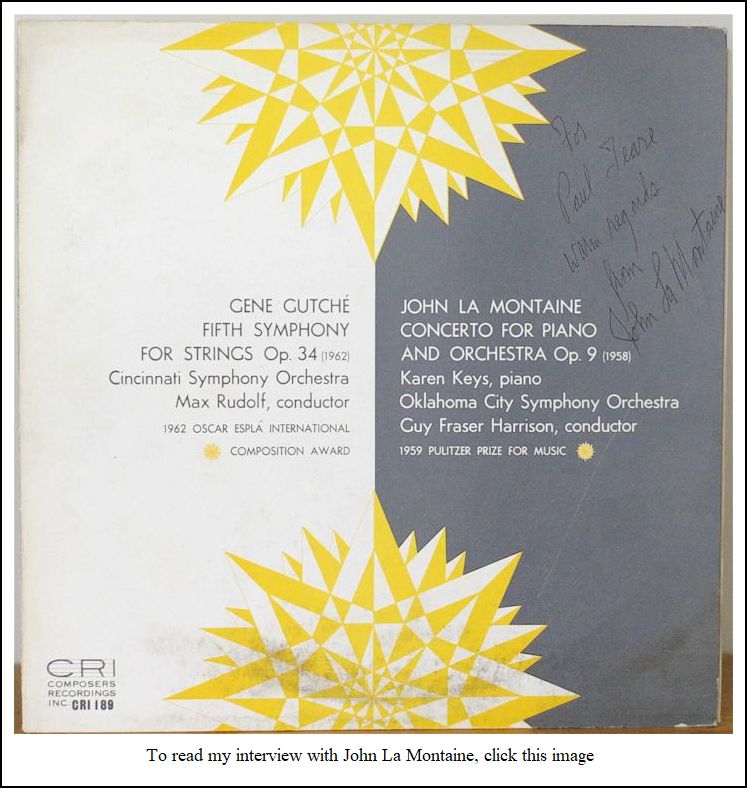 BD: By this you learned about people,
and about the human condition?
BD: By this you learned about people,
and about the human condition?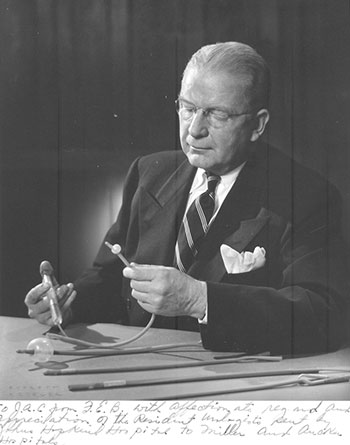 Dr. Frederic Eugene Basil Foley,
MD (April 5, 1891 – March 24, 1966) was an American urologist
who is remembered for designing the Foley catheter.
Dr. Frederic Eugene Basil Foley,
MD (April 5, 1891 – March 24, 1966) was an American urologist
who is remembered for designing the Foley catheter. He studied languages at Yale University, receiving a bachelor's degree in 1914, and then trained in medicine at the Johns Hopkins School of Medicine until his graduation in 1918. He subsequently worked with William Halsted and Harvey Cushing, and worked at the Peter Bent Brigham Hospital, Boston on the junior surgical staff. Although there is no record of his training in urology, he was certified by the American Board of Urology in 1937. Foley worked as a urologist in Boston, Massachusetts and later became chief of urology at Ancker Hospital, St. Paul, Minnesota. (Ancker hospital was renamed St. Paul Ramsey Medical Center and is now known as Regions Hospital.) Foley first described the use of a self-retaining balloon catheter in 1929, to be used to achieve haemostasis after cystoscopic prostatectomy. He worked on development of this design for use as an indwelling urinary catheter, to provide continuous drainage of the bladder, in the 1930s. His design incorporated an inflatable balloon towards the tip of the tube which could be inflated inside the bladder to retain the catheter without external taping or strapping. He demonstrated this to the American Urologists Society in 1935, and published a paper describing it in 1937. While he was still developing his catheter, a patent was issued to Paul Raiche of the Davol Rubber Company of Providence, Rhode Island in 1936. Four months later, in October 1936, Foley applied for the patent, and was awarded this after appearing before the patent office Board of Appeals. Raiche appealed this decision in court, and it was overturned, returning the patent to Raiche. A further request for a hearing made by Foley was refused, and so the patent stayed with Raiche. The C. R. Bard Company of New Jersey started distributing the catheters, under the name of Foley catheters, from 1935; consequently, the name has remained with Foley despite the patent having remained with the Davol Company. Although the materials used to make catheters have changed, the basic design of the 1930s has not. In addition to his work on urinary catheters, Foley also described a novel technique for treating strictures of the pelvi-ureteric junction which is known as the Foley Operation or the Foley Y-plasty pyeloplasty. He also invented a hydraulic operating table and a rotatable resectoscope, and described the first artificial urethral sphincter. |
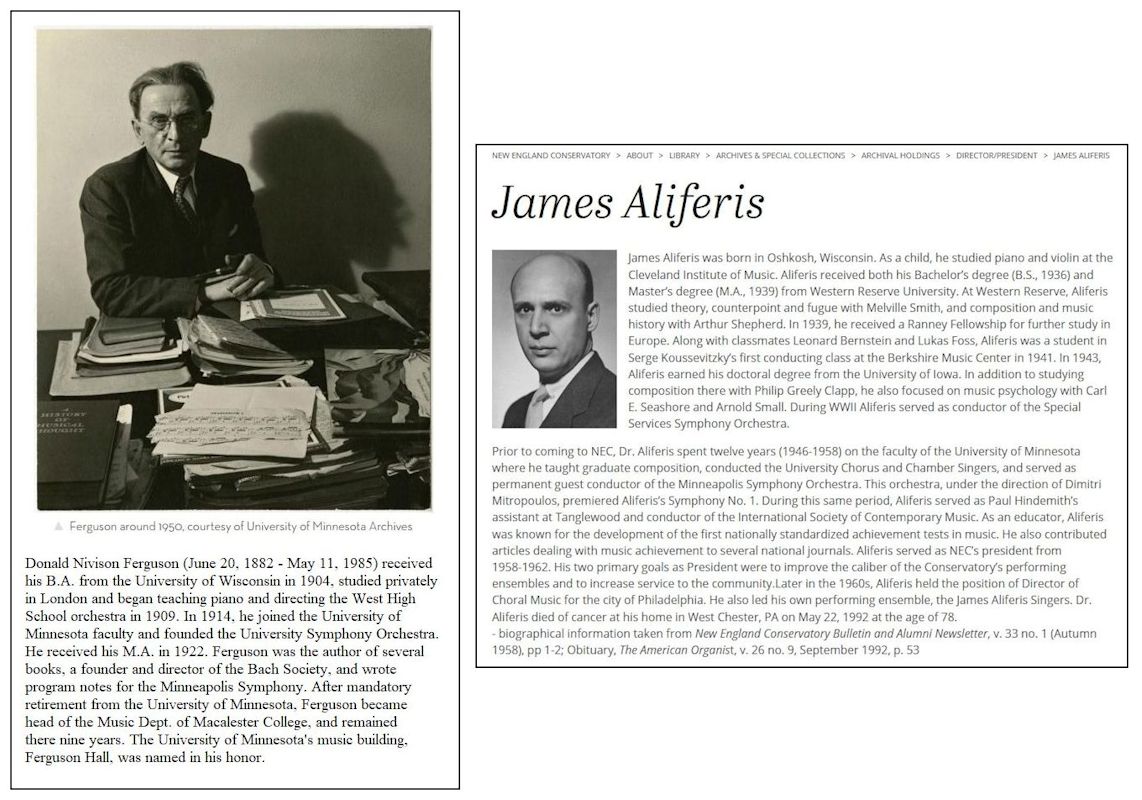
|
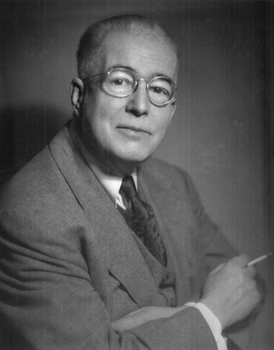
Philip Greeley Clapp (August 4, 1888 – April 9, 1954) was an American educator, conductor, pianist, and composer of classical music. He served as Director of the School of Music at the University of Iowa for more than three decades (1919–53), helping to establish that school’s strong reputation in music and in the arts overall. He worked especially hard in advocating that music and the other arts should be an integral part of a liberal arts education, and succeeded in creating strong graduate programs that awarded degrees not just in scholarship and research but also in performance and creation. |
| The Violin Concerto by Sessions
(1896-1985) was begun, at the suggestion of Serge Koussevitzky,
in the summer of 1927—although the composer later postdated the beginning
of this work to his years at the American Academy in Rome in 1928
and 1929—and was completed in 1935. It is scored for violin and orchestra
(without violins). Sessions regarded his concerto as a pronounced move away from his previous neoclassical style. According to Elliott Carter in The Musical Quarterly, it marks the beginning of his characteristic, unique style featuring extended, continuously flowing sections in which ideas surface, gain clarity and definition, and then recede again into the general flow. 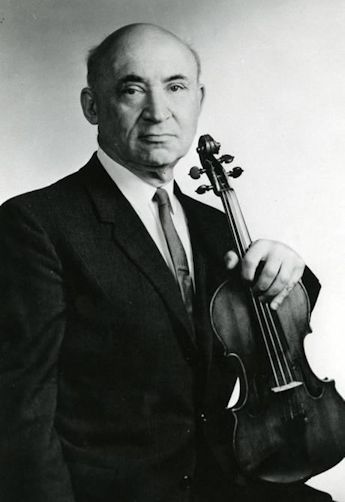 It was originally meant to have been premiered by the
Boston Symphony Orchestra during their 1932–33 season, with Richard
Burgin as soloist, but Sessions did not finish the finale—originally
to have been the third movement—in time. Ultimately deciding on a
four-movement form, Sessions delivered the violin part to Burgin in
the fall of 1934, while still orchestrating the last movement, and
Koussevitzky agreed to program the Concerto during the first
half of the 1935–36 season. When Sessions expressed a preference for a
better-known violinist, Burgin graciously stepped aside and Joseph Szigeti
was named as the probable soloist. The Concerto was finally
completed in San Francisco in August 1935. The premiere was scheduled
to take place in November 1936, but the now-intended soloist, Albert
Spalding, asked for a postponement and requested that Sessions compose
a new finale. Sessions declined and released the violinist of his obligation
to perform. Spalding could not master the violin part, especially the
"punishingly fast" tarantella finale, and the performance was canceled
at the last minute.
It was originally meant to have been premiered by the
Boston Symphony Orchestra during their 1932–33 season, with Richard
Burgin as soloist, but Sessions did not finish the finale—originally
to have been the third movement—in time. Ultimately deciding on a
four-movement form, Sessions delivered the violin part to Burgin in
the fall of 1934, while still orchestrating the last movement, and
Koussevitzky agreed to program the Concerto during the first
half of the 1935–36 season. When Sessions expressed a preference for a
better-known violinist, Burgin graciously stepped aside and Joseph Szigeti
was named as the probable soloist. The Concerto was finally
completed in San Francisco in August 1935. The premiere was scheduled
to take place in November 1936, but the now-intended soloist, Albert
Spalding, asked for a postponement and requested that Sessions compose
a new finale. Sessions declined and released the violinist of his obligation
to perform. Spalding could not master the violin part, especially the
"punishingly fast" tarantella finale, and the performance was canceled
at the last minute. The work was finally given its first performance with a professional orchestra by Louis Krasner [shown in photo at left] and the Minneapolis Symphony Orchestra, conducted by Dimitri Mitropoulos, on November 14, 1947, though an earlier performance had been given in Chicago on January 8, 1940, by Robert Arthur Gross, the WPA Illinois Symphony Orchestra, and Izler Solomon, and Gross also performed the first two movements in 1941 with the National Youth Orchestra under Leopold Stokowski. * * *
* *
Louis Krasner (June 21, [O.S. June 8] 1903 - May 4, 1995) was born in Cherkasy, in present-day Ukraine. He arrived in the United States at the age of five, and graduated from the New England Conservatory of Music in 1922. He continued his studies with Lucien Capet in Paris, Otakar Ševčík in Písek, Czechoslovakia, and Carl Flesch in Berlin. His concert career began in Europe, where he championed the concertos of Joseph Achron and Alfredo Casella. In 1935 he commissioned Alban Berg's Violin Concerto, which he premiered on April 19, 1936 in Barcelona, with Hermann Scherchen conducting the Pablo Casals Orchestra. He also premiered Arnold Schoenberg's Violin Concerto in December 1940, with Leopold Stokowski leading the Philadelphia Orchestra. Among the American composers whose works he premiered were Roger Sessions, Henry Cowell and Roy Harris. Krasner retired from solo performing to become concertmaster of the Minneapolis Symphony Orchestra 1944-1949. From 1949 to 1972 he was professor of music at Syracuse University. In 1976 he joined the faculties of the New England Conservatory of Music and the Berkshire Music Center. He won the 1983 Sanford Medal from Yale University and the 1995 Commonwealth Award. |
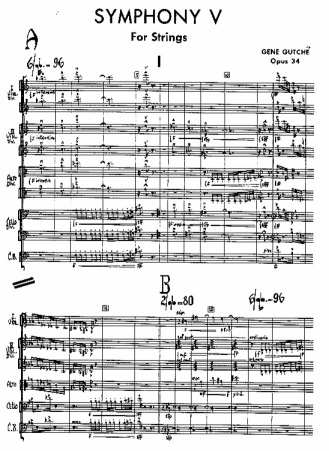 Mitropoulos was a very great humanitarian, and he was
a very brilliant musician. He was one of the few people
who brought contemporary music, not only while he was in Minneapolis,
but even when he was with the New York Philharmonic. [Returns
to the interview] This brings me to a very, very important
point. One may well ask why so little contemporary music is
being performed. Not noticeably, it began in 1980, but from then
the repertoire became narrower and narrower, and we have only the regular
repertoire of music that reigns primarily within the Classic, and to
some extent, the Romantic, and occasionally Impressionistic periods.
If ever a contemporary work was being done at all, it’s usually done under
some kind of manipulation. [Tells a story which
ties into this idea] Walter Hendl came to the Minneapolis
Symphony and conducted William Schuman’s Symphony
for Strings, and when he finished conducting, I turned to Marion,
who was sitting beside me and told her I was going to write a string
symphony for Walter Hendl. He didn’t know it, and I didn’t know
him, but when I went to hear Holofernes in Evanston, with Sydney
Harth conducting the Evanston Symphony, he had mentioned me to Walter
Hendl, and spoke of my Fourth Symphony. Hendl asked to
see me, and he met me, took me to dinner. He was very gracious, and
he said he was going to do my Fourth Symphony. I told him
that I was very flattered that he would think of doing it, but that I
was within about two weeks of finishing a Symphony for Strings,
and the only importance of this is that it was inspired by when he came
to Minneapolis to conduct the Symphony for Strings of William
Schuman. I said, “I was so impressed
that I decided to write a Symphony for Strings for you.”
Eventually, Hendl conducted it at the Chautauqua Festival, where
all the first violinists are concert-masters from around the country.
There was a forum the following afternoon, and
Hendl spoke about the Fifth Symphony, and things that people
should look for in it. He said that the composer was there, and the
audience may want to ask some questions. The first question to
me was by a man who walked half-way down the aisle. He said, “I
would like you to answer me this one question. Why is contemporary
music so ugly?” Fortunately I
had my wits about me. I waited a moment, and I said, “Who’s
to say what’s ugly? Who’s to say that’s beautiful? Perhaps
you are walking on the sidewalk, and on the opposite side you see
a man without a hat, with this flowing gray hair and a beautiful
profile. You think there is a real individual. Then
you see the woman who is walking beside him, and she is obviously
his wife. But as you gaze upon the wife, you’re horrified to
see that not only is she a cripple but she’s pimply all over the face,
and she shakes all over. You wonder how this man could look with
such loving eyes at her. So I ask you, who’s to say what’s beautiful,
and what is ugly? You heard my work, so you might
still remember some things. Let me point you out the third movement.
We lived in a little cottage, and at that time it was Spring.
It was a beautiful day, and what woke me up was the curious atmosphere,
a vibration. Everything seemed to be shimmering. The sky
was just mildly lit from the sun which hadn’t even risen. My wife
was sleeping, and I was looking out the window because our yard was surrounded
by oak trees, maple trees, elms, birches, bushes of honeysuckle and lilacs,
every flower that you can think of that grows in Minnesota. The
sun was just sending its rays up a cottonwood tree, and on its very
top there was a little bird. As the sun lit it, it sang a beautiful
song, and all I did was just copy it. [Gets tearful trying to describe
the beauty] In that moment, I gave you the gradual awakening of nature
— the beauty of the trees, and an unforgettable
song of the bird. Don’t you think that’s beautiful?”
Mitropoulos was a very great humanitarian, and he was
a very brilliant musician. He was one of the few people
who brought contemporary music, not only while he was in Minneapolis,
but even when he was with the New York Philharmonic. [Returns
to the interview] This brings me to a very, very important
point. One may well ask why so little contemporary music is
being performed. Not noticeably, it began in 1980, but from then
the repertoire became narrower and narrower, and we have only the regular
repertoire of music that reigns primarily within the Classic, and to
some extent, the Romantic, and occasionally Impressionistic periods.
If ever a contemporary work was being done at all, it’s usually done under
some kind of manipulation. [Tells a story which
ties into this idea] Walter Hendl came to the Minneapolis
Symphony and conducted William Schuman’s Symphony
for Strings, and when he finished conducting, I turned to Marion,
who was sitting beside me and told her I was going to write a string
symphony for Walter Hendl. He didn’t know it, and I didn’t know
him, but when I went to hear Holofernes in Evanston, with Sydney
Harth conducting the Evanston Symphony, he had mentioned me to Walter
Hendl, and spoke of my Fourth Symphony. Hendl asked to
see me, and he met me, took me to dinner. He was very gracious, and
he said he was going to do my Fourth Symphony. I told him
that I was very flattered that he would think of doing it, but that I
was within about two weeks of finishing a Symphony for Strings,
and the only importance of this is that it was inspired by when he came
to Minneapolis to conduct the Symphony for Strings of William
Schuman. I said, “I was so impressed
that I decided to write a Symphony for Strings for you.”
Eventually, Hendl conducted it at the Chautauqua Festival, where
all the first violinists are concert-masters from around the country.
There was a forum the following afternoon, and
Hendl spoke about the Fifth Symphony, and things that people
should look for in it. He said that the composer was there, and the
audience may want to ask some questions. The first question to
me was by a man who walked half-way down the aisle. He said, “I
would like you to answer me this one question. Why is contemporary
music so ugly?” Fortunately I
had my wits about me. I waited a moment, and I said, “Who’s
to say what’s ugly? Who’s to say that’s beautiful? Perhaps
you are walking on the sidewalk, and on the opposite side you see
a man without a hat, with this flowing gray hair and a beautiful
profile. You think there is a real individual. Then
you see the woman who is walking beside him, and she is obviously
his wife. But as you gaze upon the wife, you’re horrified to
see that not only is she a cripple but she’s pimply all over the face,
and she shakes all over. You wonder how this man could look with
such loving eyes at her. So I ask you, who’s to say what’s beautiful,
and what is ugly? You heard my work, so you might
still remember some things. Let me point you out the third movement.
We lived in a little cottage, and at that time it was Spring.
It was a beautiful day, and what woke me up was the curious atmosphere,
a vibration. Everything seemed to be shimmering. The sky
was just mildly lit from the sun which hadn’t even risen. My wife
was sleeping, and I was looking out the window because our yard was surrounded
by oak trees, maple trees, elms, birches, bushes of honeysuckle and lilacs,
every flower that you can think of that grows in Minnesota. The
sun was just sending its rays up a cottonwood tree, and on its very
top there was a little bird. As the sun lit it, it sang a beautiful
song, and all I did was just copy it. [Gets tearful trying to describe
the beauty] In that moment, I gave you the gradual awakening of nature
— the beauty of the trees, and an unforgettable
song of the bird. Don’t you think that’s beautiful?”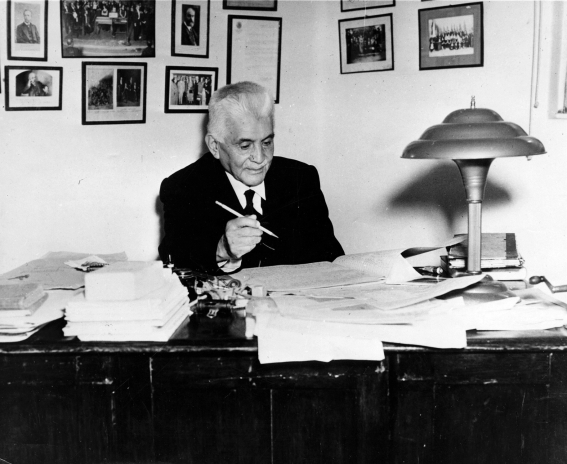
Julián Carrillo Trujillo (January 28, 1875 – September 9, 1965) was a Mexican composer, conductor, violinist and music theorist, famous for developing a theory of microtonal music which he dubbed "The Thirteenth Sound" (Sonido 13). He was the last of 19 children. In 1951, in Pittsburgh, Leopold Stokowski performed for the first time Horizontes: Poema sinfónico (Horizons: Symphonic Poem for violin, cello and harp in quarter- eighth- and sixteenth-tones). The concert was so successful that Stokowski had to repeat the complete work. The next year, Stokowski performed Horizontes in Washington, Baltimore and Minneapolis. |
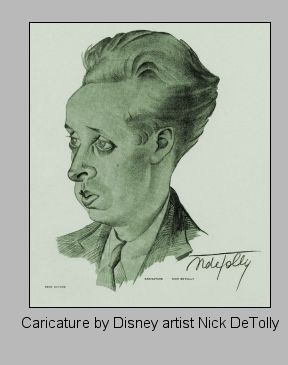
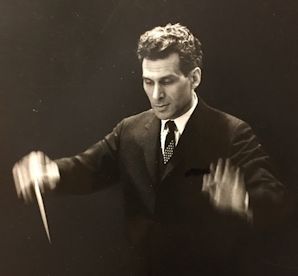
Howard Shanet (November 9, 1918 – June 19, 2006) was a conductor and composer. He started his musical career as a cellist, earning a Bachelor's degree from Columbia in 1939 and a Master's in Musicology in 1941. After military service in World War II, he studied musical composition with Bohuslav Martinů and Aaron Copland, and conducting with Serge Koussevitzky and Fritz Stiedry. During the early 1950s, he was conducting assistant to Leonard Bernstein at the New York Philharmonic. In 1953, he joined Columbia's faculty as Professor of Music, later becoming chairman of its music department from 1972–1978. |
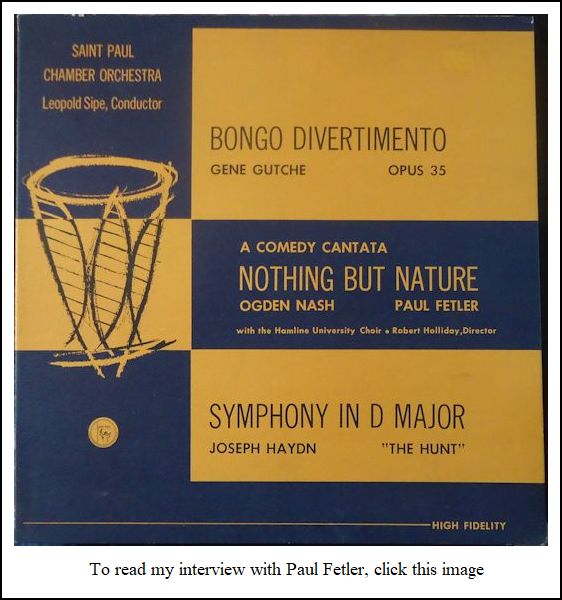 He said, “I’ve looked
over your Rondo Capriccioso, as have several of the men
at the New York Philharmonic, and they were all very interested in doing
it. Have you any objection if they did?”
I said, “No, why should I?”
He continued, “We formed a chamber
group, and every year at Cooper’s Union, New York, which is on
14th Street, we perform. There is no admission charge, and
usually we do contemporary works. Besides your work, there’ll
be a work from a man from Guatemala, and one from Argentina, and
someone from France, and Spain.” He
told me about the date, and asked if I could come, and I said certainly
I would. And so in, I think it was either January, or February,
or even in March, and 14th Street is where all the bums in New
York congregate, simply because there’s a library there, and
they can get warm. That night, when we were giving this performance
of contemporary music, the house was packed with just these bums
who came in not only to get warm, but because it was free.
When I got there that morning, you smelled coffee, and doughnuts, and
dirty underwear. At the performance, my work was done right before
the intermission. The piece only lasted two minutes and
some seconds, and the applause was tremendous. Maybe the doughnuts
had something to do with the applause, but at the end, the conductor,
Howard Shanet, brought the composers to the podium, and said the audience
could ask them questions of their work. I was asked last because
I had the shortest piece, and it’s one of the dearest experiences
of my life. An elderly gentleman, in full dress among all these
bums, came down the aisle with a slight limp and an ebony cane and
a silver handle. When he was close to the podium, he raised his
stick at me, and said [in an elderly voice], “Why
do you write crap like that?”
There was silence, but after a pause which gave me time for reflection,
in a very quiet voice I said, “You know,
you’re absolutely right! When I first came to the rehearsal this
morning, I really expected the musicians to take their instruments
and hit me over the head. Instead, they had no problems with
it whatsoever, and at the end of the piece, they said how much they
enjoyed the work.” I was reminded
of the time when Bernard Shaw had the world premiere of Major
Barbara in the Old Vic. After it was all over, the people
applauded and demanded for the author to came out. Shaw was just
about ready to open his mouth when a cockney up in the gallery said,
“I say it stinks!”
Shaw stroked his beard for a minute, and he said, “You
know, you’re absolutely right! But who are we against this
majority?” [Both laugh] Many incidents
are simply joyful with musicians and soloists, but I want to say
one very important thing that is of a serious nature. Many orchestras
have performed my music, and the greatest frustration that I hear
from musicians is that they’re playing the same music over and over
again. The only difference is that instead of having had one conductor,
they get one conductor this week, and the next conductor for another week.
Not only that, but every conductor comes with his own ideas of bowing,
and the librarian and his assistant have to erase everything in the parts.
They say that sometimes they can hardly read the music because there
have been so many erasures. What I would like to hear
— and I don’t mean myself, but I speak for the
greater majority of professional musicians today
— is a contemporary work by a composer who has something
to say. Today you can hear music of any worth at all, and it will
come out just as beautifully as it should be. But the stress!
We have been so concerned with techniques, and with new forms of doing
things, that it has given weight to the idea that it’s the only way
music should be written today. We are living in an age of technology,
and we see everything more as a mechanical thing. Mitropoulos
didn’t have to go to Minneapolis. He could conduct anywhere in
the world. He wasn’t just a musician, he was a great artist.
He was a man who inspired not only the musicians, but the people.
But above all, he was also a teacher. By the time he left
Minneapolis, he had raised the musical level to such a power that when
Doráti arrived,
the layman felt the musicians never played better. But
because they had a new man, and the musicians felt they had to
play better, or they’d get fired. It’s simple and as practical
as that. By the same token, Szell didn’t have to go to Cleveland,
but he raised the standard and inspired the players and the audience.
These men brought music which developed the sensitivities
and the feeling for tastes, and instilled that quest for more. This
is so vital, and this is the thing that is suffering today more
than anything else. Even the musicians are frustrated.
What they hate most of all is that some American composers write
music of such an intellectual nature. I don’t want
to mention the name because I don’t believe in that, but it was a
man who is a most respected American composer. I was told that
some of the players even took his music home and studied it, so everything
would be done just exactly the way he wanted it. Then, after all
this hard work, there was just a smattering of applause.
I have had the experience that my music is more acceptable. Some
of the players would come to me — not
everybody, but several — and they
would say it’s such a pleasure to do my work. Not that it is
easy, mind you, but at least they feel rewarded. Then the greatest
reward comes when hearing that warm applause.
He said, “I’ve looked
over your Rondo Capriccioso, as have several of the men
at the New York Philharmonic, and they were all very interested in doing
it. Have you any objection if they did?”
I said, “No, why should I?”
He continued, “We formed a chamber
group, and every year at Cooper’s Union, New York, which is on
14th Street, we perform. There is no admission charge, and
usually we do contemporary works. Besides your work, there’ll
be a work from a man from Guatemala, and one from Argentina, and
someone from France, and Spain.” He
told me about the date, and asked if I could come, and I said certainly
I would. And so in, I think it was either January, or February,
or even in March, and 14th Street is where all the bums in New
York congregate, simply because there’s a library there, and
they can get warm. That night, when we were giving this performance
of contemporary music, the house was packed with just these bums
who came in not only to get warm, but because it was free.
When I got there that morning, you smelled coffee, and doughnuts, and
dirty underwear. At the performance, my work was done right before
the intermission. The piece only lasted two minutes and
some seconds, and the applause was tremendous. Maybe the doughnuts
had something to do with the applause, but at the end, the conductor,
Howard Shanet, brought the composers to the podium, and said the audience
could ask them questions of their work. I was asked last because
I had the shortest piece, and it’s one of the dearest experiences
of my life. An elderly gentleman, in full dress among all these
bums, came down the aisle with a slight limp and an ebony cane and
a silver handle. When he was close to the podium, he raised his
stick at me, and said [in an elderly voice], “Why
do you write crap like that?”
There was silence, but after a pause which gave me time for reflection,
in a very quiet voice I said, “You know,
you’re absolutely right! When I first came to the rehearsal this
morning, I really expected the musicians to take their instruments
and hit me over the head. Instead, they had no problems with
it whatsoever, and at the end of the piece, they said how much they
enjoyed the work.” I was reminded
of the time when Bernard Shaw had the world premiere of Major
Barbara in the Old Vic. After it was all over, the people
applauded and demanded for the author to came out. Shaw was just
about ready to open his mouth when a cockney up in the gallery said,
“I say it stinks!”
Shaw stroked his beard for a minute, and he said, “You
know, you’re absolutely right! But who are we against this
majority?” [Both laugh] Many incidents
are simply joyful with musicians and soloists, but I want to say
one very important thing that is of a serious nature. Many orchestras
have performed my music, and the greatest frustration that I hear
from musicians is that they’re playing the same music over and over
again. The only difference is that instead of having had one conductor,
they get one conductor this week, and the next conductor for another week.
Not only that, but every conductor comes with his own ideas of bowing,
and the librarian and his assistant have to erase everything in the parts.
They say that sometimes they can hardly read the music because there
have been so many erasures. What I would like to hear
— and I don’t mean myself, but I speak for the
greater majority of professional musicians today
— is a contemporary work by a composer who has something
to say. Today you can hear music of any worth at all, and it will
come out just as beautifully as it should be. But the stress!
We have been so concerned with techniques, and with new forms of doing
things, that it has given weight to the idea that it’s the only way
music should be written today. We are living in an age of technology,
and we see everything more as a mechanical thing. Mitropoulos
didn’t have to go to Minneapolis. He could conduct anywhere in
the world. He wasn’t just a musician, he was a great artist.
He was a man who inspired not only the musicians, but the people.
But above all, he was also a teacher. By the time he left
Minneapolis, he had raised the musical level to such a power that when
Doráti arrived,
the layman felt the musicians never played better. But
because they had a new man, and the musicians felt they had to
play better, or they’d get fired. It’s simple and as practical
as that. By the same token, Szell didn’t have to go to Cleveland,
but he raised the standard and inspired the players and the audience.
These men brought music which developed the sensitivities
and the feeling for tastes, and instilled that quest for more. This
is so vital, and this is the thing that is suffering today more
than anything else. Even the musicians are frustrated.
What they hate most of all is that some American composers write
music of such an intellectual nature. I don’t want
to mention the name because I don’t believe in that, but it was a
man who is a most respected American composer. I was told that
some of the players even took his music home and studied it, so everything
would be done just exactly the way he wanted it. Then, after all
this hard work, there was just a smattering of applause.
I have had the experience that my music is more acceptable. Some
of the players would come to me — not
everybody, but several — and they
would say it’s such a pleasure to do my work. Not that it is
easy, mind you, but at least they feel rewarded. Then the greatest
reward comes when hearing that warm applause.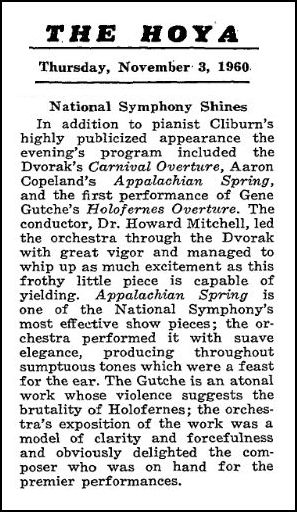 Gutchë: As I pointed out very early when we started
talking, the function of the artist is to hold up a mirror to civilization,
and have civilization see it. The mirror, of course,
is that which he creates — whether
it’s in the form of a painting, or a sculpture, or music, or prose
writing. Not long ago, we listened to Cleveland Orchestra under
their new conductor, Christoph von Dohnányi.
They were doing Ecuatorial by Varèse, Survivor from
Warsaw of Schönberg, and the ‘Jupiter’ symphony of Mozart.
If you’re a performing musician, you’re not listening to music,
you’re listening to sound. I make quite a point of the new era that
has to do with sound and not music. Varèse, to my way of thinking,
writes not music but sound, and yet what he writes is so completely reflected
in what we’re doing. The sound he produces has an echo in the way
we produce and manufacture, and in the way we live. If you object
to the tremendous noise he makes, think of the noise that’s going on in
our world today. In all fairness, Beethoven would never have been
to create in such an environment because of the planes going, and the rattling
of saws cutting a tree. You have to have silence. The
mind has to have a chance to reflect, and this comes to the point where
I have the rare gift of having an inner life. Wagner had it,
Beethoven had it, Mozart had it, all the best composers had it...
not that I’m assuming be a great composer, but I’m trying to say it
has to come from the inside out. A creator thinks from the inside
out, but how can he think that way unless he has digested all the things
that have happened to him? In order for an artist to really know
how to express himself, he has to allow himself to go amongst the people,
no matter what. Whether he goes amongst people of limited development,
or people who are perverted to drugs or other such vices, or goes and
gets himself in prison to talk to people, he must go and reach out.
Because of all the experiences he gets, he absorbs all this. At
first, it is so much mush inside of him, and it takes time for his stomach
and brain to digest it all. He will remove that which matters, and
retain that, and from it he must try to bring out the very finest that
a human being is capable of. But he must do it in such a way that
he is not trying to show humanity as an angel, but in such a way where
he appears to be human. That’s where people like Mozart, and Haydn,
and Brahms, and Beethoven reside. The German word bach means
brook, and Beethoven said Bach should not be called a brook, but an ocean!
That’s why I have never regretted in my life that I actually didn’t
really begin to write music that can be performed and should be listened
to until very late. After my degrees, I spent about seven or eight
years just writing experimental music and tearing it up. It means
reflecting. The style of writing is a matter of the individual.
It is not a style of the people. If you meant that, then I
would have used words that reflect an accepted norm. As an example,
if we sat at a table and we belched, you would never be invited to that
place again because that’s not very polite. Yet, in India, if
you didn’t belch after an excellent meal, you wouldn’t be invited back
because the host expects you to belch as a matter of expressing your
appreciation. These are cultural differences. When we meet somebody,
we shake hands and say, “How are you?”
Among the Tibetan people, you would not do that. You stick
out your tongue. That means, “Hello.”
We live in a norm of accepted practices. They may be norms that
are based on laws, on religion, and on our economic factors.
Yet you can go to another continent and they may think it’s completely
absurd, and vice-versa. Style in music is something that grows out
of the individual who creates, no matter what form he uses to create.
Gutchë: As I pointed out very early when we started
talking, the function of the artist is to hold up a mirror to civilization,
and have civilization see it. The mirror, of course,
is that which he creates — whether
it’s in the form of a painting, or a sculpture, or music, or prose
writing. Not long ago, we listened to Cleveland Orchestra under
their new conductor, Christoph von Dohnányi.
They were doing Ecuatorial by Varèse, Survivor from
Warsaw of Schönberg, and the ‘Jupiter’ symphony of Mozart.
If you’re a performing musician, you’re not listening to music,
you’re listening to sound. I make quite a point of the new era that
has to do with sound and not music. Varèse, to my way of thinking,
writes not music but sound, and yet what he writes is so completely reflected
in what we’re doing. The sound he produces has an echo in the way
we produce and manufacture, and in the way we live. If you object
to the tremendous noise he makes, think of the noise that’s going on in
our world today. In all fairness, Beethoven would never have been
to create in such an environment because of the planes going, and the rattling
of saws cutting a tree. You have to have silence. The
mind has to have a chance to reflect, and this comes to the point where
I have the rare gift of having an inner life. Wagner had it,
Beethoven had it, Mozart had it, all the best composers had it...
not that I’m assuming be a great composer, but I’m trying to say it
has to come from the inside out. A creator thinks from the inside
out, but how can he think that way unless he has digested all the things
that have happened to him? In order for an artist to really know
how to express himself, he has to allow himself to go amongst the people,
no matter what. Whether he goes amongst people of limited development,
or people who are perverted to drugs or other such vices, or goes and
gets himself in prison to talk to people, he must go and reach out.
Because of all the experiences he gets, he absorbs all this. At
first, it is so much mush inside of him, and it takes time for his stomach
and brain to digest it all. He will remove that which matters, and
retain that, and from it he must try to bring out the very finest that
a human being is capable of. But he must do it in such a way that
he is not trying to show humanity as an angel, but in such a way where
he appears to be human. That’s where people like Mozart, and Haydn,
and Brahms, and Beethoven reside. The German word bach means
brook, and Beethoven said Bach should not be called a brook, but an ocean!
That’s why I have never regretted in my life that I actually didn’t
really begin to write music that can be performed and should be listened
to until very late. After my degrees, I spent about seven or eight
years just writing experimental music and tearing it up. It means
reflecting. The style of writing is a matter of the individual.
It is not a style of the people. If you meant that, then I
would have used words that reflect an accepted norm. As an example,
if we sat at a table and we belched, you would never be invited to that
place again because that’s not very polite. Yet, in India, if
you didn’t belch after an excellent meal, you wouldn’t be invited back
because the host expects you to belch as a matter of expressing your
appreciation. These are cultural differences. When we meet somebody,
we shake hands and say, “How are you?”
Among the Tibetan people, you would not do that. You stick
out your tongue. That means, “Hello.”
We live in a norm of accepted practices. They may be norms that
are based on laws, on religion, and on our economic factors.
Yet you can go to another continent and they may think it’s completely
absurd, and vice-versa. Style in music is something that grows out
of the individual who creates, no matter what form he uses to create.|
Maestro Russell Theodore Stanger
Norfolk - Maestro Russell Theodore Stanger, founding conductor of the Virginia Symphony Orchestra and internationally noted composer and conductor, passed away peacefully on January 7, 2015, in Norfolk. He was born May 8, 1924, in Arlington, MA, to Herbert Theophilus Stanger and Millicent Caroline Stemler Stanger. He acquired an early interest in music and was playing the piano with his twin brother, Herbert, at the age of six and studying violin at eight. He organized his first orchestra of neighborhood children in Newton, MA, at twelve and was regularly conducting music at fifteen. Upon graduating from high school, he received a scholarship to study violin at the New England Conservatory of Music in Boston. His education was interrupted by the entry of the United States in World War II. He and his brother Herb enlisted in the Navy and served as aviation radiomen on naval aircraft in the Pacific, where they spent time on the Solomon Islands and participated in the liberation of the Philippines. At the end of the war, Maestro Stanger returned to the New England Conservatory to complete his undergraduate degree in music. He spent three summers at Tanglewood, the summer venue of the Boston Symphony, in Lenox, MA. There he sharpened his skills under the tutelage of many well-known conductors, including Leonard Bernstein, who ultimately became a mentor and close friend. 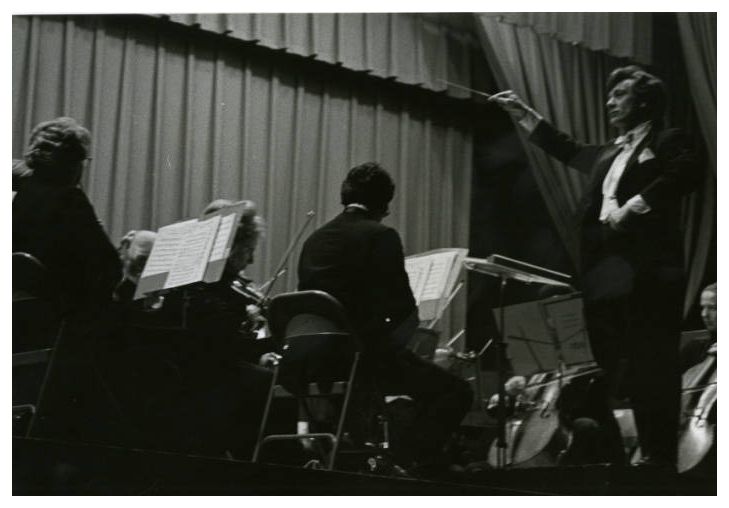
He earned a master's degree from the New England Conservatory in 1952 and began his professional career as director of the Harvard-Radcliffe Orchestra, followed by three years at the Boston University Symphony Orchestra. During that time, he conducted the Boston Pops as a fill-in for Arthur Fiedler. In 1956, he was selected from 120 contestants as the winner of the Eugene Ormandy National Conductors Competition in Philadelphia. He organized the Boston Little Orchestra in 1958 and served as Associate Conductor of the New York Philharmonic from 1960 to 1962 under Leonard Bernstein. From 1964 to 1966 he was Associate Conductor of the Minneapolis Symphony (now the Minnesota Orchestra). In 1966, he came to Virginia as the music director and conductor of the Norfolk Symphony (now the Virginia Symphony), and upon his retirement in 1980 was named conductor laureate. Under his leadership the Symphony held its first open auditions and hired its first African-American musicians. He nurtured and inspired the Virginia Symphony to a new level of excellence. His extraordinary talent and warm character strengthened the orchestra and won the support of the entire region. Maestro Stanger conducted the orchestra at the 1972 opening of Chrysler Hall and at the first Harborfest outdoor celebration on the Norfolk waterfront in 1979 with "Boom Boom" Zambelli's fireworks in the background. He was an incomparable orchestra builder and a deeply beloved maestro. 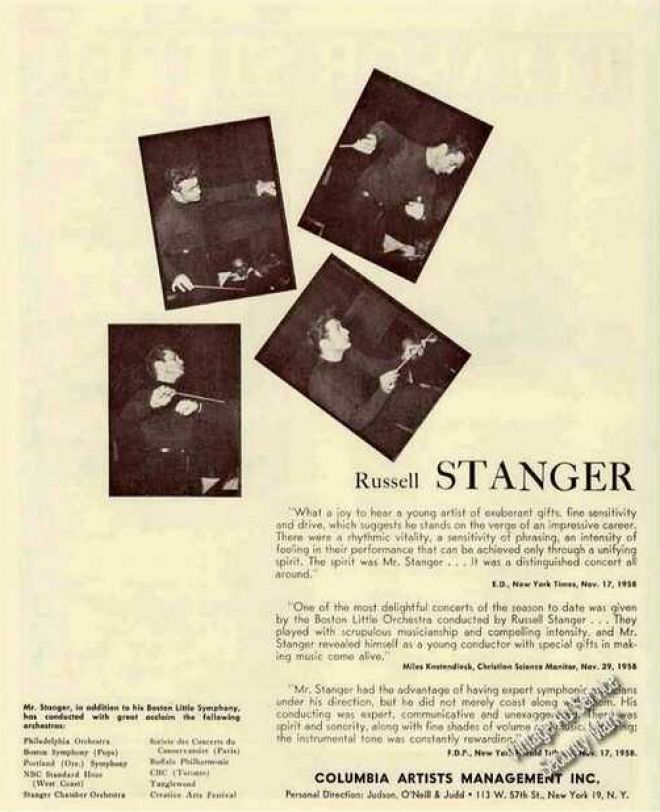 Not one to rest on laurels, Russell traveled to Saratoga Springs,
NY, in 1982 as guest conductor of the New York State Summer School
of the Arts (NYSSSA) School of Orchestral Studies (SOS) full and string
orchestras. NYSSSA SOS is a program for gifted and talented high school
musicians whom Russell brought to high levels of achievement during the
many years of his tutelage. From 1983 until 2007 Russell was the Artistic
Director and Principal Conductor of the program. He led over 50 outstanding
concerts, inspired over 2,500 young musicians and successfully collaborated
with many of the Philadelphia Orchestra's members to provide excellent
music experiences for performers and audiences alike. Upon his retirement
in 2008 he was named Artistic Director Emeritus for the School of Orchestral
Studies.
Not one to rest on laurels, Russell traveled to Saratoga Springs,
NY, in 1982 as guest conductor of the New York State Summer School
of the Arts (NYSSSA) School of Orchestral Studies (SOS) full and string
orchestras. NYSSSA SOS is a program for gifted and talented high school
musicians whom Russell brought to high levels of achievement during the
many years of his tutelage. From 1983 until 2007 Russell was the Artistic
Director and Principal Conductor of the program. He led over 50 outstanding
concerts, inspired over 2,500 young musicians and successfully collaborated
with many of the Philadelphia Orchestra's members to provide excellent
music experiences for performers and audiences alike. Upon his retirement
in 2008 he was named Artistic Director Emeritus for the School of Orchestral
Studies.[Image at left is from a commercial site, thus their watermark] Maestro Stanger served as guest conductor with some of the leading orchestras in North American and Europe, including the Philadelphia Orchestra, New York Philharmonic, Canadian Broadcasting Company Symphony, National Broadcasting Corporation Orchestra, Bilbao (Spain) Symphony, Jalapa (Mexico) Symphony Orchestra, Buffalo Philharmonic, Oslo Philharmonic, Bergen (Norway) Philharmonic, Royal Philharmonic, London Philharmonic, Orchestre Symphonique de Reims, and Societe des Concerts du Conservatoire, Paris. He also conducted for Benny Goodman, Isaac Stern, Newport News native Ella Fitzgerald and famed cellist Yo-Yo Ma. During his time in Minneapolis he met and collaborated with the Russian composer Igor Stravinsky. As president of the Norfolk Sister Cities Association in the mid-1980s, Maestro Stanger developed a long friendship with the musical community of Norfolk's sister city Kitakyushu, Japan. He made a number of trips to Japan, and in 1989 he was commissioned to compose a piece for the celebration of the fiftieth anniversary of Mukogawa Gauquin, the largest women's university in Japan. He was artistic advisor of the Miyazaki Symphony Orchestra and conducted the Kyushu (Japan) Orchestra in the performance of two of his own works. In addition to conducting, Stanger composed several works, including Buffoons; A Merry Overture [1963]; Childhood Images [1968]; Rock Opus (for symphony orchestra and optional rock group) [1970]; Episodes '76 [1976]; Symphony No.1, Op.10 ("Kitakyushu") [1989]; Commemorative Celebration[1989]; and Miyazaki, Op.12 [1994]. Maestro Stanger was a long-time friend of F. Ludwig Diehn and a promoter of Diehn's music. Upon Diehn's death and generous bequest to Old Dominion University, Stanger was named an advisor to the F. Ludwig Diehn Fund under the purview of the Hampton Roads Community Foundation. Stanger donated his own collection of photographs, recordings, music notations, original scores and other memorabilia, including letters from Leonard Bernstein, to the F. Ludwig Diehn Composers Room at ODU. In May of 2009, the university awarded Maestro Stanger an honorary doctorate and named the Russell Stanger String Quartet in his honor. Russell met his wife, Mildred ("Millie") Lanier Sheffield Stanger, a Norfolk native and accomplished interior designer, soon after arriving in Norfolk. They enjoyed travel, entertaining, mentoring, and encouraging each other in their respective professions during their marriage of thirty-two years. He dearly loved and cherished Millie and cared for her compassionately until her death in 2003. In addition to Millie, Maestro Stanger was preceded in death by his brother William Nathaniel Stanger and his nephew, Scott Stanger, both of Spokane, WA. He is survived by his twin brother, Herbert C. Stanger, and wife, Donna, of San Mateo, CA, and two nieces, Dawn Graves of Belmont, CA, and Sheri Hockaday of Redwood City, CA. Russell Stanger is fondly remembered by his friends around the world as a kind, nurturing individual with exceptional manners and an uplifting spirit. He is remembered by former students and musicians as an energetic director who inspired them to rise to their best. He was cared for and respected as "Maestro" at the Ballentine Home, where he had resided since 2009. His family extends their appreciation for the love shown by his personal caregivers Virginia, Gloria, Shakeena, and Brian, and close friends who visited him often at the Ballentine. A celebration of life service will be held on Saturday, January 31, 2015, at 11:00 a.m. at Chandler Recital Hall in the Diehn Center for the Performing Arts, 49th Street and Elkhorn Ave., Old Dominion University, Norfolk, VA. For details, contact H.D. Oliver Funeral Apartments in Norfolk at 622-7353 or HDOliver.com. Memorial donations may be made to Old Dominion University earmarked for the Russell Stanger String Quartet, addressed to the Department of Music, Room 2123 Diehn Center for the Performing Arts, 4810 Elkhorn Ave., Norfolk, VA, 23529. Published
in The Virginian-Pilot on Jan. 25, 2015 (text only - photos from other
sources)
Besides what is shown above, a recording he made with the Royal Philharmonic Orchestra (London), and pianist, Earl Wild, was given the "Critic's Choice Award." |
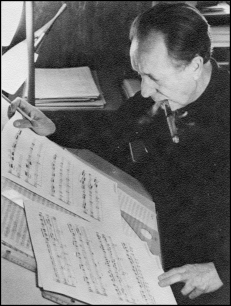 Gutchë: I am, yes. But
the real money is not in serious music. That’s chicken feed,
because the people that are making the money are in the pop
music. That’s where they run into billions. But
I make more money in royalties from broadcasting than from the performances.
It’s almost laughable... not that I earn any kind of fortune.
Marion and I are fortunate. When we got married, we went
to New York with $60 and a toothpick. We’ve always learned
to live so we enjoy life, not to live it up in order to belong to a
certain golf club, where, in order to join you’ve got to get a $500
outfit, and $2,500 golf clubs. Then you’ve got to become
a member of the restaurant, so at the end of the month you get
presented with a statement between $3000 and $5,000. We don’t go
along with this kind of life. We just lead a very simple life.
It’s not a poor life. It’s very rich in other ways. We
live in a very humble cottage surrounded with a wonderful garden, and
trees, and bushes. We have a quadruped whose name is Peppy, and
he’s an orange Belton. He’s a hunting dog, and I can talk to him
just as I am talking to you, and he understands every word I say.
He’s very intelligent. We live a very rich, but very confined life.
I don’t need to see people for what I do. The more confined
I am, the better is my creative output.
Gutchë: I am, yes. But
the real money is not in serious music. That’s chicken feed,
because the people that are making the money are in the pop
music. That’s where they run into billions. But
I make more money in royalties from broadcasting than from the performances.
It’s almost laughable... not that I earn any kind of fortune.
Marion and I are fortunate. When we got married, we went
to New York with $60 and a toothpick. We’ve always learned
to live so we enjoy life, not to live it up in order to belong to a
certain golf club, where, in order to join you’ve got to get a $500
outfit, and $2,500 golf clubs. Then you’ve got to become
a member of the restaurant, so at the end of the month you get
presented with a statement between $3000 and $5,000. We don’t go
along with this kind of life. We just lead a very simple life.
It’s not a poor life. It’s very rich in other ways. We
live in a very humble cottage surrounded with a wonderful garden, and
trees, and bushes. We have a quadruped whose name is Peppy, and
he’s an orange Belton. He’s a hunting dog, and I can talk to him
just as I am talking to you, and he understands every word I say.
He’s very intelligent. We live a very rich, but very confined life.
I don’t need to see people for what I do. The more confined
I am, the better is my creative output.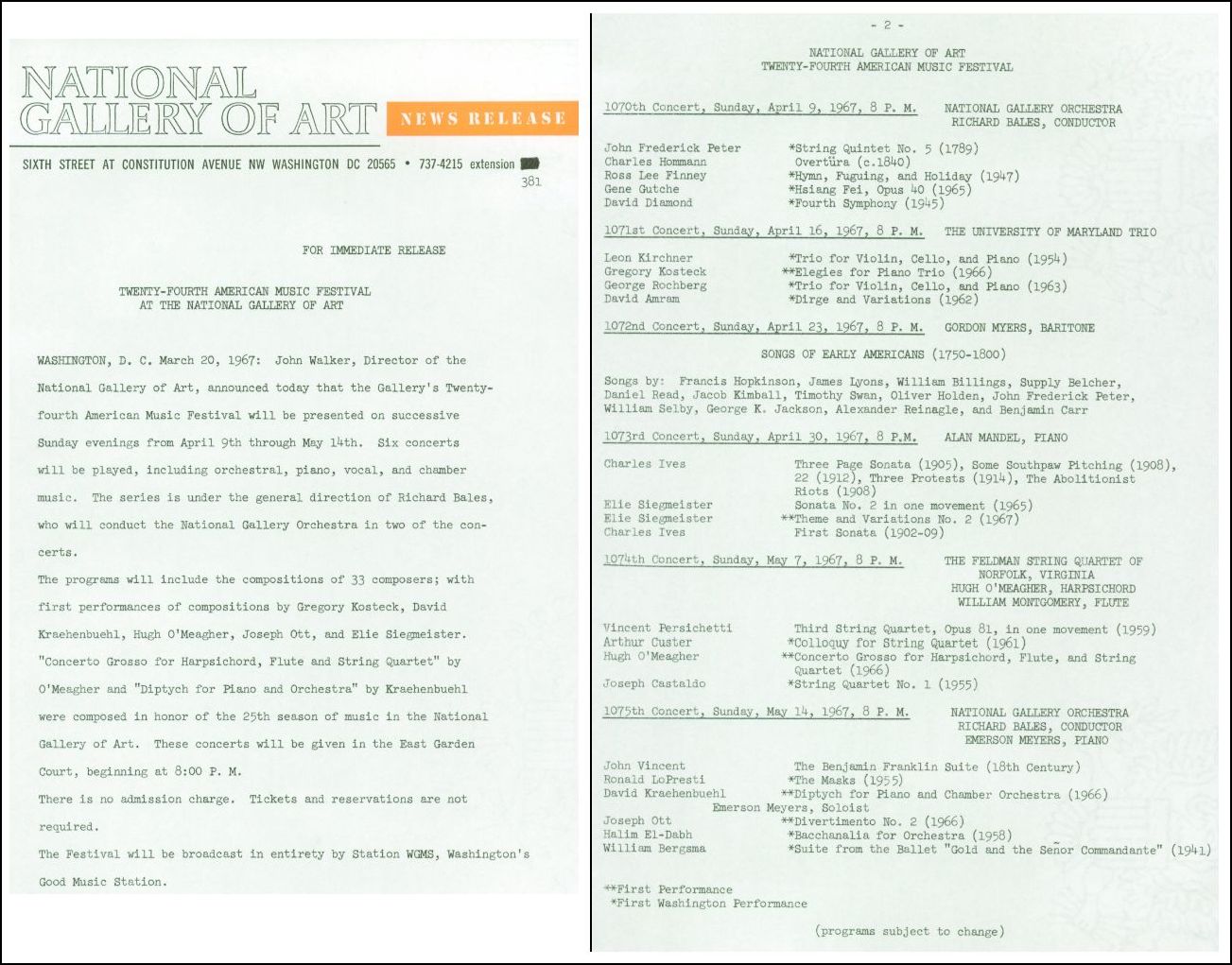
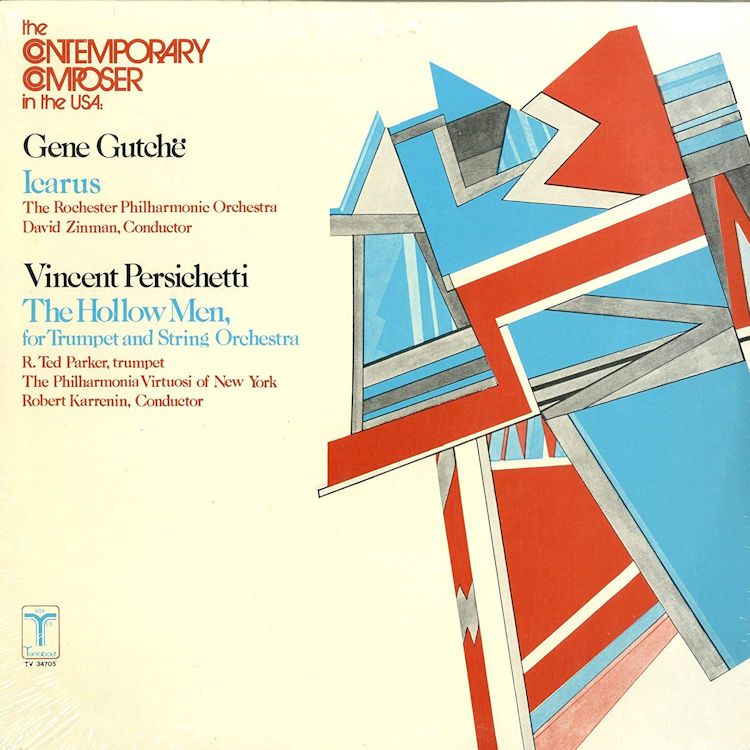 You asked earlier if I was pleased with the performances, and I
always was. I never disapproved. Conductors constantly said
they’re happy to tell me that the musicians enjoyed playing my music.
Also, the musicians themselves took me aside. One principal cellist
said what a relief it was to play something like that again. I had
many solo parts for cellists. In fact, I wrote a trio for the
concertmaster, the principal violist, and the cellist. I learned
that lesson from Brahms. How does one rise above being the smallest
that you are? It’s by looking for the greatest, and trying to
find out what they did. Did they just do it for exercise, or did
they do it because they had something to say? This is the thing
I would like to emphasize here. [Pauses a moment before starting
another story] I don’t want to accuse all the composers, but eventually
we will dismiss some of these techniques, these new ways of doing things.
One composer, whose name will never be heard from again, wrote a piece that
got a first prize. It was a chamber orchestra work. Here were
musicians who had spent maybe twenty years of their lives to perfect themselves
on their instruments. They were all professionals. That’s how
they made their living. Here they were sitting and doing this piece,
but nobody touched their instruments. The cellist sat with a little
stool in front of him, and he had a little metal bar. Others were
asked to [makes monkey noises], and this went on for about six minutes.
This is an insult to the intelligence of the musicians. I knew
some of the men, and I went to the cellist and asked why they were doing
this. He said, “Because we are getting
paid!” [Both laugh] That’s going to
the extreme. Now I don’t say that all composers do that sort of
thing, although I will tell you something about the man I praised a little
while ago, Roger Sessions, for his marvelous Violin Concerto.
The year that I won the Minnesota Centennial Award for my Third String
Quartet (1958), Sessions was commissioned to write a symphony
— his Fourth Symphony. Gerhard Samuel, who used
to be an associate conductor of the Minneapolis Symphony under Mitropoulos
and Doráti was in charge of the Centennial. Sessions was
given $2,500, which was considered big money in those days, to write
this symphony. By late August, just about the week before the season
began, Samuel said to me, “I haven’t even been
able to program the rehearsal yet.” Samuel
had written him, “It was under an agreement that
you would have your new symphony for us in the Centennial. Therefore,
since you haven’t got it ready, may we ask for our money back?”
[Laughs] Session wrote back, “I
haven’t got it. I spent it!” [Much laughter]
Anyway, Doráti said he’d do this Centennial work in the next season.
When the next season came and they played the symphony, it was such a dull
work, almost unbelievable when compared to the Violin Concerto,
so it got hardly any applause. As it happened, about two or three
months earlier, I had gone to New York to see the man who was in charge
of Concert Music Administration at BMI. As I sat down, next to me
I recognized Sessions. The reason I recognized him was that when
he had been in Minnesota for the Violin Concerto, he was asked by
the Music Department of the University to address the student body, and
talk about the work. What he had to say was marvelous, except that
while he was speaking, he would march around, and shuffle his feet. Dr.
Aliferis was clawing for every word that had been said, and finally we students
were asked what we thought of his masterpiece. One person was raving,
and behaved almost like a fellow talking about a beautiful girl.
Finally, when he came to me, I said that it was a great piece, a real fine
work of art, and had been done beautifully by the concertmaster and Mitropoulos.
The only thing I would recommend is that you should have gone to
the bathroom before coming in this room, because judging from the way you
shuffled your feet, you certainly had to go. [Both have a huge
laugh] [Continues with another story] The Minneapolis
Symphony, which became the Minnesota Orchestra, was always very good.
Charles Munch came along as guest conductor. As I
have told you, I had permission from Mitropoulos to attend all rehearsals.
When I walked in, there was that doorman who shouted, “No,
you don’t! You don’t get in there!”
He was so loud that Munch turned to me, and I addressed him in French.
“Maestro, I know it’s an imposition, but under
Mitropoulos, perhaps because he’s known me since I was a student
of Busoni’s, he always allowed me to come to the rehearsals. I
would consider it a very valuable thing if I could attend yours.
I’ve never heard you conduct, and I know I would learn a great deal.”
Of course, he said yes, and put my chair right next to the podium.
Because he didn’t speak English, I could translate for him, but he
didn’t say anything at the first rehearsal. After the rehearsal
we spoke in his dressing room, and he said, “You’re
a musician, of course. What field are you in?”
“I’m studying to become a composer.”
Oh, you’re still unknown!” [Laughs]
He meant that in a jesting way. He was such a marvelous
conductor. He didn’t have to talk. He would gesture and
bring everything out. He could phrase things and yet never
lose the beat. It would be always there. Sometimes in fast
sections he would just beat the first bar, because you don’t need the
conductor waving his arms all the time. Anyway, at the last rehearsal,
he turned to me and said, “Please tell the musicians
that I have never been so overwhelmed by this extraordinary rehearsal,
and actually we should have not rehearsed today. I should have just
stopped yesterday because everything was just going beautifully.”
The musicians applauded. He walked out, and I walked behind
him. Then, as he shut the door to his dressing room, he said,
“Ah, Mon Dieu, [My God]! They’re
awful. They’re absolutely awful,” and
from this I learned a lesson. When you’re dealing with people,
don’t always tell them how you feel. But when he got on the podium
that night, he really did make them believe they were even greater
than they were. When musicians look at you, and you know that
they know everything that is in that piece of music, he brings it out.
He points at them and they start to play for him. It was
strange that he died (in 1968) in Richmond Virginia while on tour with
a French orchestra. [Pauses again, and then continues reminiscing]
When I was a little more established, I got a letter from Otto
Klemperer, who was then with the Philharmonia Orchestra. He
said, “I have heard your Fifth Symphony.
I would like you to send the score so that I can study it and perform
it.” So, I sent that score to London.
About six or eight weeks went by and I never heard a word, so I finally
wrote to him asking if he had received it. Very shortly after that,
I got a letter from his daughter, saying she was very sorry to tell me,
but her father had died.
You asked earlier if I was pleased with the performances, and I
always was. I never disapproved. Conductors constantly said
they’re happy to tell me that the musicians enjoyed playing my music.
Also, the musicians themselves took me aside. One principal cellist
said what a relief it was to play something like that again. I had
many solo parts for cellists. In fact, I wrote a trio for the
concertmaster, the principal violist, and the cellist. I learned
that lesson from Brahms. How does one rise above being the smallest
that you are? It’s by looking for the greatest, and trying to
find out what they did. Did they just do it for exercise, or did
they do it because they had something to say? This is the thing
I would like to emphasize here. [Pauses a moment before starting
another story] I don’t want to accuse all the composers, but eventually
we will dismiss some of these techniques, these new ways of doing things.
One composer, whose name will never be heard from again, wrote a piece that
got a first prize. It was a chamber orchestra work. Here were
musicians who had spent maybe twenty years of their lives to perfect themselves
on their instruments. They were all professionals. That’s how
they made their living. Here they were sitting and doing this piece,
but nobody touched their instruments. The cellist sat with a little
stool in front of him, and he had a little metal bar. Others were
asked to [makes monkey noises], and this went on for about six minutes.
This is an insult to the intelligence of the musicians. I knew
some of the men, and I went to the cellist and asked why they were doing
this. He said, “Because we are getting
paid!” [Both laugh] That’s going to
the extreme. Now I don’t say that all composers do that sort of
thing, although I will tell you something about the man I praised a little
while ago, Roger Sessions, for his marvelous Violin Concerto.
The year that I won the Minnesota Centennial Award for my Third String
Quartet (1958), Sessions was commissioned to write a symphony
— his Fourth Symphony. Gerhard Samuel, who used
to be an associate conductor of the Minneapolis Symphony under Mitropoulos
and Doráti was in charge of the Centennial. Sessions was
given $2,500, which was considered big money in those days, to write
this symphony. By late August, just about the week before the season
began, Samuel said to me, “I haven’t even been
able to program the rehearsal yet.” Samuel
had written him, “It was under an agreement that
you would have your new symphony for us in the Centennial. Therefore,
since you haven’t got it ready, may we ask for our money back?”
[Laughs] Session wrote back, “I
haven’t got it. I spent it!” [Much laughter]
Anyway, Doráti said he’d do this Centennial work in the next season.
When the next season came and they played the symphony, it was such a dull
work, almost unbelievable when compared to the Violin Concerto,
so it got hardly any applause. As it happened, about two or three
months earlier, I had gone to New York to see the man who was in charge
of Concert Music Administration at BMI. As I sat down, next to me
I recognized Sessions. The reason I recognized him was that when
he had been in Minnesota for the Violin Concerto, he was asked by
the Music Department of the University to address the student body, and
talk about the work. What he had to say was marvelous, except that
while he was speaking, he would march around, and shuffle his feet. Dr.
Aliferis was clawing for every word that had been said, and finally we students
were asked what we thought of his masterpiece. One person was raving,
and behaved almost like a fellow talking about a beautiful girl.
Finally, when he came to me, I said that it was a great piece, a real fine
work of art, and had been done beautifully by the concertmaster and Mitropoulos.
The only thing I would recommend is that you should have gone to
the bathroom before coming in this room, because judging from the way you
shuffled your feet, you certainly had to go. [Both have a huge
laugh] [Continues with another story] The Minneapolis
Symphony, which became the Minnesota Orchestra, was always very good.
Charles Munch came along as guest conductor. As I
have told you, I had permission from Mitropoulos to attend all rehearsals.
When I walked in, there was that doorman who shouted, “No,
you don’t! You don’t get in there!”
He was so loud that Munch turned to me, and I addressed him in French.
“Maestro, I know it’s an imposition, but under
Mitropoulos, perhaps because he’s known me since I was a student
of Busoni’s, he always allowed me to come to the rehearsals. I
would consider it a very valuable thing if I could attend yours.
I’ve never heard you conduct, and I know I would learn a great deal.”
Of course, he said yes, and put my chair right next to the podium.
Because he didn’t speak English, I could translate for him, but he
didn’t say anything at the first rehearsal. After the rehearsal
we spoke in his dressing room, and he said, “You’re
a musician, of course. What field are you in?”
“I’m studying to become a composer.”
Oh, you’re still unknown!” [Laughs]
He meant that in a jesting way. He was such a marvelous
conductor. He didn’t have to talk. He would gesture and
bring everything out. He could phrase things and yet never
lose the beat. It would be always there. Sometimes in fast
sections he would just beat the first bar, because you don’t need the
conductor waving his arms all the time. Anyway, at the last rehearsal,
he turned to me and said, “Please tell the musicians
that I have never been so overwhelmed by this extraordinary rehearsal,
and actually we should have not rehearsed today. I should have just
stopped yesterday because everything was just going beautifully.”
The musicians applauded. He walked out, and I walked behind
him. Then, as he shut the door to his dressing room, he said,
“Ah, Mon Dieu, [My God]! They’re
awful. They’re absolutely awful,” and
from this I learned a lesson. When you’re dealing with people,
don’t always tell them how you feel. But when he got on the podium
that night, he really did make them believe they were even greater
than they were. When musicians look at you, and you know that
they know everything that is in that piece of music, he brings it out.
He points at them and they start to play for him. It was
strange that he died (in 1968) in Richmond Virginia while on tour with
a French orchestra. [Pauses again, and then continues reminiscing]
When I was a little more established, I got a letter from Otto
Klemperer, who was then with the Philharmonia Orchestra. He
said, “I have heard your Fifth Symphony.
I would like you to send the score so that I can study it and perform
it.” So, I sent that score to London.
About six or eight weeks went by and I never heard a word, so I finally
wrote to him asking if he had received it. Very shortly after that,
I got a letter from his daughter, saying she was very sorry to tell me,
but her father had died. 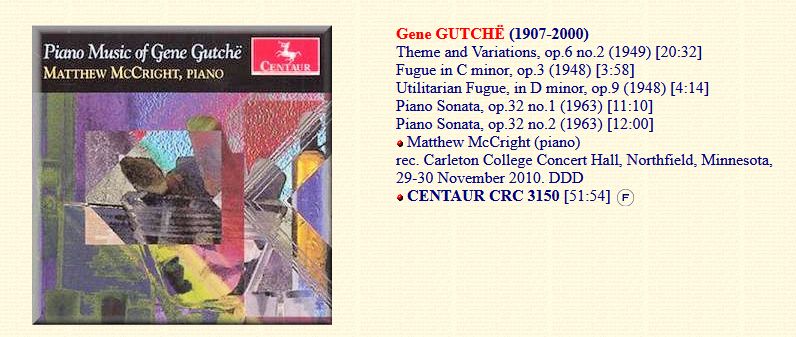
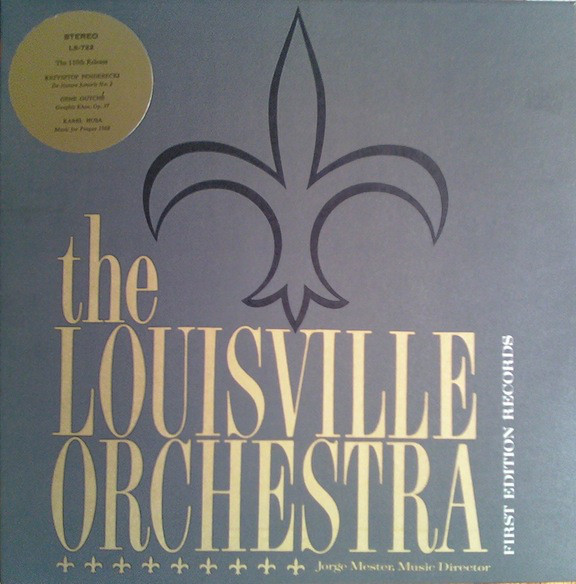
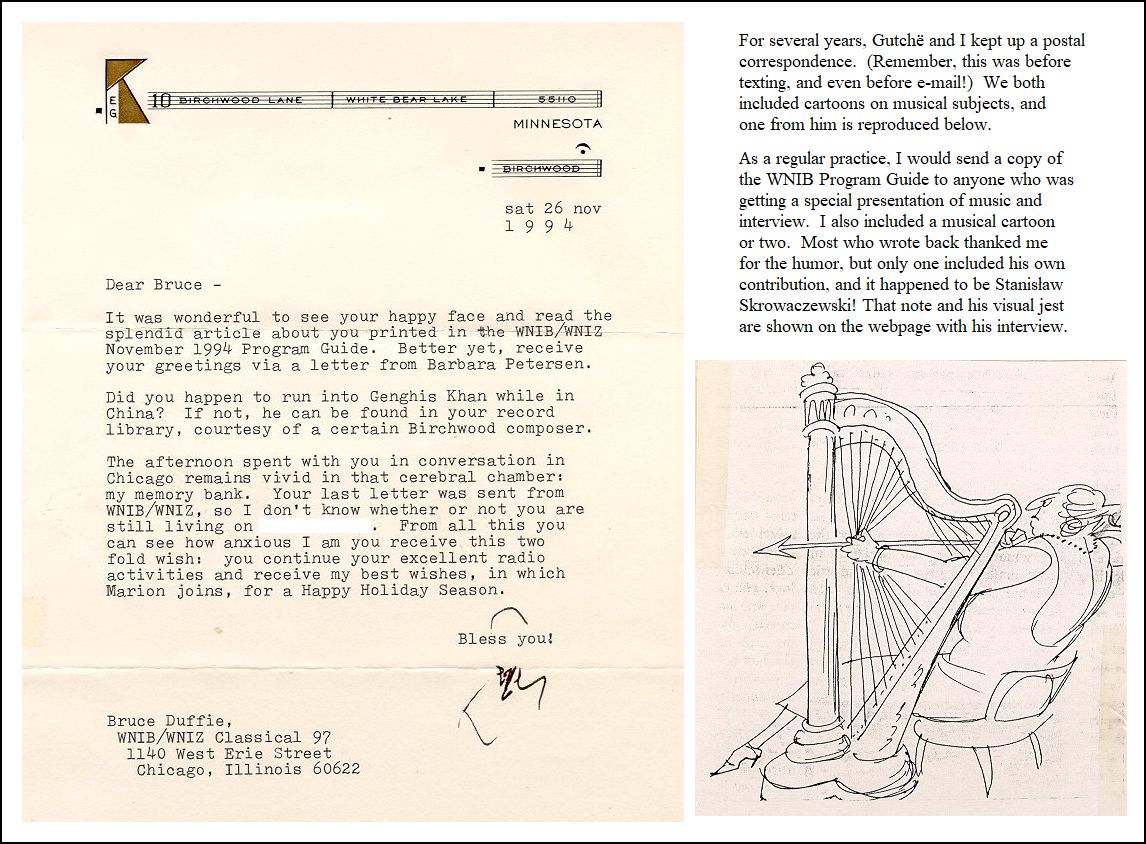
© 1986 Bruce Duffie
This conversation was recorded in Chicago on June 11, 1986. Portions were broadcast on WNIB five months later, and again the following year, and in 1992 and 1997; on WNUR in 2007, 2013, and 2019; and on Contemporary Classical Internet Radio in 2008. A brief portion was used (along with music) aboard United Airlines in January and February of 1989. That package was also used aboard Air Force One, the Presidential Jetliner. This transcription was made in 2020, and posted on this website at that time. My thanks to British soprano Una Barry for her help in preparing this website presentation.
To see a full list (with links) of interviews which have been transcribed and posted on this website, click here. To read my thoughts on editing these interviews for print, as well as a few other interesting observations, click here.
Award - winning broadcaster Bruce Duffie was with WNIB, Classical 97 in Chicago from 1975 until its final moment as a classical station in February of 2001. His interviews have also appeared in various magazines and journals since 1980, and he now continues his broadcast series on WNUR-FM, as well as on Contemporary Classical Internet Radio.
You are invited to visit his website for more information about his work, including selected transcripts of other interviews, plus a full list of his guests. He would also like to call your attention to the photos and information about his grandfather, who was a pioneer in the automotive field more than a century ago. You may also send him E-Mail with comments, questions and suggestions.